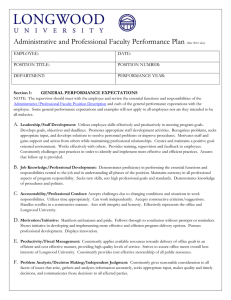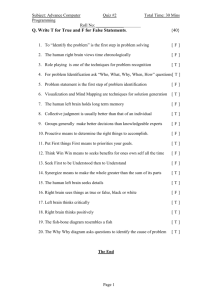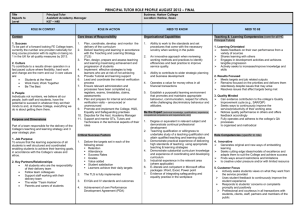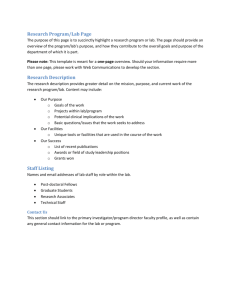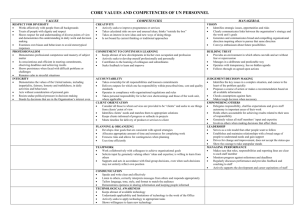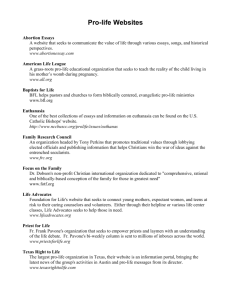Vision Statement on the Global Chemical Industry
advertisement
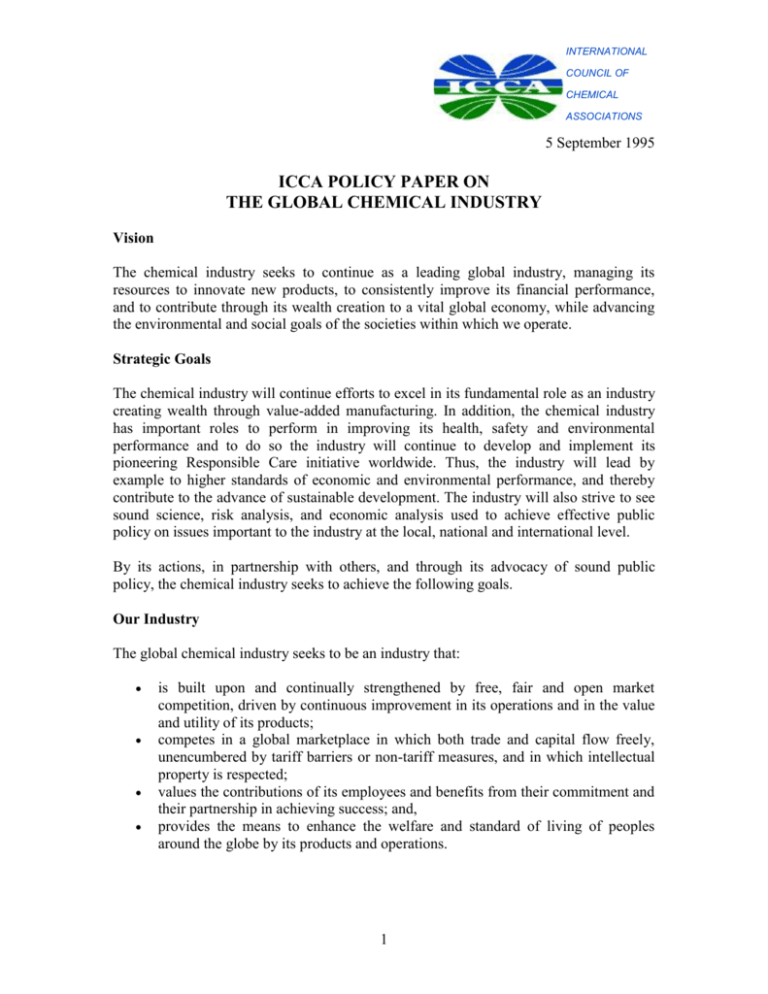
INTERNATIONAL COUNCIL OF CHEMICAL ASSOCIATIONS 5 September 1995 ICCA POLICY PAPER ON THE GLOBAL CHEMICAL INDUSTRY Vision The chemical industry seeks to continue as a leading global industry, managing its resources to innovate new products, to consistently improve its financial performance, and to contribute through its wealth creation to a vital global economy, while advancing the environmental and social goals of the societies within which we operate. Strategic Goals The chemical industry will continue efforts to excel in its fundamental role as an industry creating wealth through value-added manufacturing. In addition, the chemical industry has important roles to perform in improving its health, safety and environmental performance and to do so the industry will continue to develop and implement its pioneering Responsible Care initiative worldwide. Thus, the industry will lead by example to higher standards of economic and environmental performance, and thereby contribute to the advance of sustainable development. The industry will also strive to see sound science, risk analysis, and economic analysis used to achieve effective public policy on issues important to the industry at the local, national and international level. By its actions, in partnership with others, and through its advocacy of sound public policy, the chemical industry seeks to achieve the following goals. Our Industry The global chemical industry seeks to be an industry that: is built upon and continually strengthened by free, fair and open market competition, driven by continuous improvement in its operations and in the value and utility of its products; competes in a global marketplace in which both trade and capital flow freely, unencumbered by tariff barriers or non-tariff measures, and in which intellectual property is respected; values the contributions of its employees and benefits from their commitment and their partnership in achieving success; and, provides the means to enhance the welfare and standard of living of peoples around the globe by its products and operations. 1 Our Products The global chemical industry seeks through its research and development and product stewardship efforts to make products that: are increasing in utility and value for people around the globe, through innovation stemming from increasing investment in research and product development. are reducing risks to both human health and the environment, through more complete understanding of their fate and the effects associated with their manufacture, use and disposal, the more systematic attention to emerging scientific questions and evidence, and the application of the principles of risk assessment and cost-benefit analysis; and are enabling customers to improve their environmental performance, and/or increase their efficiency of energy or natural resource consumption, and/or improve the environmental performance of the products they make. Our Operations The global chemical industry seeks to manage its operations and facilities so that they: are understood and welcomed by countries and communities in every part of the world as safe and valuable assets contributing to their economic growth and social well-being. work with their host countries and communities to understand, anticipate and systematically reduce the risk of emergency situations. are designed to reduce risks to health and the environment from emissions to the environment and waste; and, increase the efficiency with which our industry consumes energy and natural resources in the process of chemical manufacturing. Our Relations with Others The global chemical industry seeks to have constructive relations with employees, customers, governments, the public, and other interested parties so that the industry is: consistently involved through outreach and dialogue with governments and interested parties at local, national and international levels, and respected by participants throughout these arenas. regularly sought by governments and interested parties at all levels for counsel and technical resources whenever they consider policy issues or problems of mutual interest. cooperating with governments and interested parties to efficiently develop and share non-proprietary technical and scientific information to solve common problems and to contribute to education and development. 2 working with governments and interested parties to develop and implement science and risk-based public policy that is practicable, flexible and competitively neutral as the framework for response to public concerns about health, safety and the environment. keeping alert to developments in the frontiers of science, particularly as they relate to chemicals, recognizing the interest of both industry and society to reduce risk where critical and balanced assessment of scientific evidence indicates unacceptable damage or harm; and, coordinating internationally to ensure that advocacy of its common interests is conducted as efficiently and effectively as possible, leading to constructive relations with interested parties and to environmental goals and objectives increasingly harmonized across nations. 3



